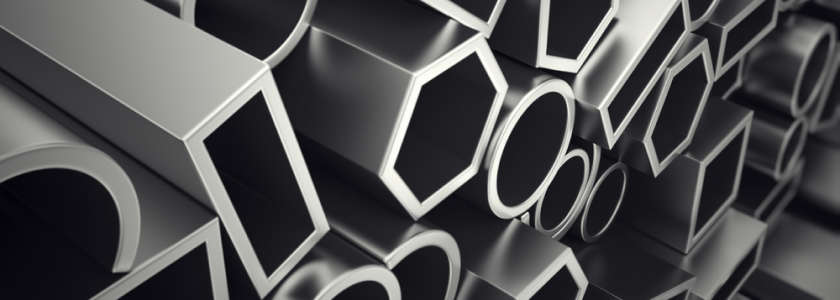

Alloy steel is a type of steel that contains varying amounts of alloying elements such as chromium, nickel, molybdenum, vanadium, and others. These alloying elements impart specific properties to the steel, such as increased strength, improved corrosion resistance, enhanced hardness, and better heat resistance. The addition of these elements allows alloy steel to exhibit superior performance characteristics compared to carbon steel.
At Om Steel, we provide a comprehensive selection of alloy steel products, including alloy steel pipes, tubes, sheets, plates, and fittings. Our inventory consists of various grades and specifications to cater to the diverse requirements of different industries. Whether you need alloy steel for structural applications, machinery components, high-temperature environments, or any other specific use, we have the right solution for you.
We understand the importance of quality and reliability in alloy steel products. Therefore, we source our materials from reputable manufacturers who adhere to stringent quality control standards. All our alloy steel products undergo rigorous testing to ensure they meet industry standards and exceed customer expectations.
Our knowledgeable and experienced team is dedicated to providing exceptional service to our clients. We are ready to assist you in finding the perfect alloy steel solution for your project. We strive to deliver products on time, offer competitive pricing, and provide personalized attention to ensure your complete satisfaction.
Whether you are a small business owner, contractor, or industrial project manager, you can trust Om Steel to fulfill your alloy steel requirements. We have established a strong reputation for excellence and reliability in the industry, and we are committed to maintaining the highest standards of customer service and product quality.
Properties of
Alloy steel
Strength
Alloy steel is known for its high strength and toughness due to the addition of alloying elements like chromium, nickel, and molybdenum. It can withstand high stress and strain without breaking or deforming.
Corrosion resistance
Alloy steel has better corrosion resistance compared to carbon steel due to the presence of alloying elements like chromium and nickel. These elements form a protective layer on the surface of the steel, preventing it from rusting or corroding.
Weldability
Duplex steel is generally considered to be highly weldable, although care must be taken to avoid certain welding defects that can occur.
Hardness
Alloy steel can have higher hardness compared to carbon steel due to the presence of alloying elements like vanadium and tungsten. This makes it suitable for applications that require wear resistance and durability.
Machinability
Alloy steel can be more difficult to machine compared to carbon steel due to its hardness and toughness. However, with the right tools and techniques, it can be machined effectively.
Weldability
Alloy steel can have varying degrees of weldability depending on the specific alloy and composition. Some alloys are easier to weld than others, and may require specific welding techniques or pre-heat treatment to ensure a strong and durable weld.
Alloy Steel
Grades & Features
| Alloy Steel Grade | Features |
|---|---|
| AISI 4140 | High strength, good toughness, excellent fatigue strength, good wear resistance, moderate corrosion resistance |
| AISI 4340 | High strength, excellent toughness, good wear resistance, good corrosion resistance, good fatigue strength, good machinability |
| AISI 8620 | Good toughness, high strength, good wear resistance, good weldability, moderate machinability, moderate corrosion resistance |
| AISI 52100 | High strength, excellent wear resistance, good toughness, good machinability, good fatigue strength |
| AISI 6150 | High strength, good toughness, good wear resistance, good fatigue strength, moderate machinability |
| AISI 4130 | Good strength, excellent toughness, good fatigue strength, good weldability, good machinability, moderate corrosion resistance |
| AISI 316 | Excellent corrosion resistance, good strength, good toughness, good weldability, good machinability |
| AISI 304 | Good corrosion resistance, good strength, good toughness, good weldability, good machinability |
Alloy Steel
Physical Properties
| Property / Alloy Steel Grade | AISI 4140 | AISI 4340 | AISI 8620 | AISI 52100 | AISI 6150 | AISI 4130 | AISI 316 | AISI 304 |
|---|---|---|---|---|---|---|---|---|
| Density (g/cm³) | 7.85 | AISI 4340 | 7.85 | 7.81 | 7.81 | 7.85 | 8.0 | 8.0 |
| Melting Point (°C) | 1425–1510 | 1425–1510 | 1435–1465 | 1425–1510 | 1480–1525 | 1425–1510 | 1370–1400 | 1399–1454 |
| Thermal Conductivity (W/m·K) | 44.5 | 36.6 | 44.5 | 43.8 | 42.6 | 44.5 | 16.3 | 16.3 |
| Electrical Conductivity (MS/m) | 26.6 | 24.7 | 26.6 | 21.4 | 21.9 | 26.6 | 1.45 | 1.45 |
| Coefficient of Thermal Expansion (10⁻⁶/K) | 12.3 | 11.2 | 12.3 | 11.9 | 11.8 | 12.3 | 16.5 | 17.3 |
| Specific Heat Capacity (J/kg·K) | 477 | 477 | 477 | 477 | 477 | 477 | 502 | 500 |
Alloy Steel
Mechanical Properties
| Alloy Steel Grade | Tensile Strength (MPa) | Yield Strength (MPa) | Elongation (%) | Reduction in Area (%) | Hardness (HRC) |
|---|---|---|---|---|---|
| AISI 4140 | 655–950 | 415 | 20 | 40 | 22–30 |
| AISI 4340 | 745–1085 | 470 | 20 | 40 | 23–33 |
| AISI 8620 | 620–900 | 415 | 20 | 45 | 18–23 |
| AISI 52100 | 745–980 | 480 | 20 | 45 | 58–64 |
| AISI 6150 | 925–1200 | 725 | 12 | 30 | 46–51 |
| AISI 4130 | 670–1100 | 435 | 20 | 40 | 20–30 |
| AISI 316 | 515 | 205 | 40 | 50 | 95–105 |
| AISI 304 | 505 | 215 | 40 | 50 | 85–95 |
Application Industry
Serving Diverse Sectors with Precision & Performance
Om Steel supplies premium steel and alloy products to a wide range of industries, ensuring strength, durability, and performance in every application. From construction, oil & gas, and automotive to power plants, shipbuilding, and chemical processing — our materials meet the demands of critical operations. Trusted by industry leaders, we deliver solutions that stand up to the toughest challenges.
Defence & Aerospace
Oil/Gas
Speciality Valves & Vacuum
Precision Components
Defence & Aerospace
Oil/Gas
Speciality Valves & Vacuum
Precision Components
Explore Our
Products
Continue Reading on Similar Topics
Ask Anything
Do you have any questions?







